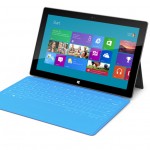
The FTC appears ill-equipped to guard students’ electronic privacy; schools need more broadband capacity to realize the benefits of technology, a recent report argues; and a new tablet from Microsoft aims to compete with the iPad where it’s most vulnerable, which is content creation: These are among the top educational technology stories in the July/August edition of eSchool News.
Our July/August edition is now available in digital format on our website. You can browse the full publication here, or click on any of the headlines below to read these highlights:
FTC ill-equipped to guard ePrivacy
As the Federal Trade Commission tries to protect consumers’ digital privacy—by publishing a recent report targeting the data-collection practices of mobile apps for kids, for instance, and launching a voluntary Do Not Track program for technology companies—a report from Peter Maass of the nonprofit journalism service ProPublica reveals how hamstrung the agency is in these efforts…
Report: Schools need more broadband
School districts should provide a minimum of 100 megabits per second (Mbps) of bandwidth for every 1,000 students and staff members within the next two years, and federal lawmakers should provide more funding to help make this happen, according to a report released by the State Educational Technology Directors Association…
New Yahoo! course is like traffic school for sexting
Students who send explicit photos on their cell phones wouldn’t have to be branded as sex offenders, if a new curriculum developed by Yahoo! Inc. catches on…
 Microsoft’s ‘Surface’ tablet aims for productivity
Microsoft’s ‘Surface’ tablet aims for productivity
Microsoft has unveiled a new tablet computer, Surface, that attempts to take advantage of one of the few criticisms of Apple’s iPad—that it is better for consuming content than creating it…
‘Data center in a box’ could ease virtual computing
Managing a virtual computing environment can be challenging for school technology departments, which traditionally have had to buy separate servers and software and then piece everything together. Now, a new disruptive technology aims to help schools and other organizations cut costs and streamline the deployment of virtual computing by combining servers, storage, and virtualization in a single box…
New Google Chromebooks could prove attractive for schools
Google Inc. is trying to win more converts to a computer operating system revolving around its popular Chrome web browser with a new wave of lightweight laptops built by Samsung Electronics. The latest Chromebooks include many features that could make the devices more popular with school leaders looking to roll out one-to-one computing initiatives with a limited IT staff…
Twelve new ed-tech companies to watch
Game-based learning and mobile apps are beginning to catch on in schools—and these also were key characteristics that defined many of the dozen emerging ed-tech companies recently recognized for their potential by the Software & Information Industry Association…

Comments are closed.